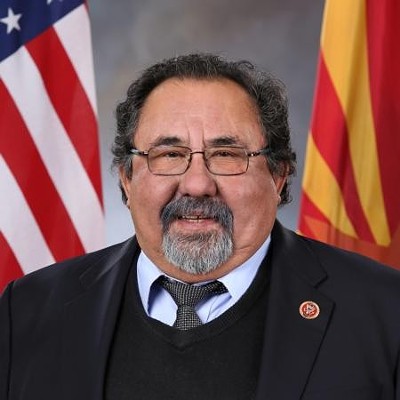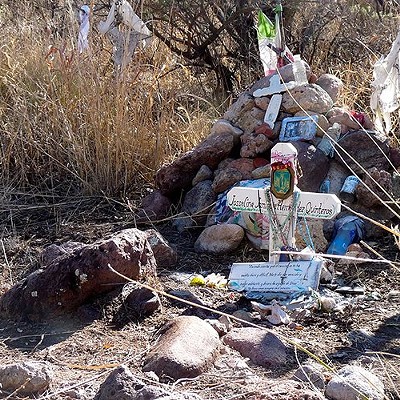The way the storm clouds are gathering, I'd say that it's iffy that anything will be done by the Fourth of July, and maybe only 50-50 by Labor Day, what with the traditional all-of-August vacation factored in. That would make the autumn very interesting, because there's no way this thing will be allowed to seep into an election year, especially one that will essentially be in full gear by this Thanksgiving. The naysayers on all sides (there are certainly more than two sides to this issue) have dug in their heels and are all pretty much heaping scorn on the bill, its origins and its backers. Some people in Arizona won't even look at the bill, because Kyl had the gall to sit down and talk to the Antichrist from Massachusetts, Ted Kennedy.
I will never support the Kyl-Kennedy Kompromise (KKK), because it includes a provision for a Bracero program. Anybody who thinks that the use (and misuse) of "guest workers" is a good idea needs to shut up and go back to his job of counting Daddy's millions, which were probably made by exploiting cheap labor in the first place. Everybody should be against this abomination, especially labor unions, which are still reeling from bowing down to Bill Clinton's NAFTA nonsense in the '90s and need to take a stand for the working person before they become the irrelevant organizations that detractors have long been trying to paint them as.
Over the past week, I've been asking one of those questions to which I can never get a decent answer: Exactly how many people should be allowed into this country each year? Those on the Minutemen end of the spectrum admit that, traditionally, "some" people should be allowed into the United States each year, but only on a strictly legal basis. Meanwhile, even the most la-la people on the other end, those out setting up lemonade stands on the "Migrant Trail," will begrudgingly agree that, in these dangerous times, there must be some accounting of the comings and goings along the border.
For me, the frustration comes from the Pushme-Pullyou nature of the whole mess. I'm an absolutist by nature. I never smoke, never drink and eat way too much. We should either close the border or open it all the way; I don't really care which. I'm not afraid of terrorists coming in; they're already here. Neither do I believe that it would be impossible to close the border. Americans can do anything.
What we've got to stop doing is leaving the fate of people's lives up to whether they get lucky enough to sign on with the least-unscrupulous coyote. We've got to decide whether we are, indeed, a nation of laws, and, if so, start acting accordingly. If there's a law on the books, enforce it. If a majority doesn't want it enforced, take it off the books. Don't be selective; it generates cynicism.
Then there's another matter. A few months ago, I met a guy who has been in this country, illegally, most of his 24 years. He graduated from high school here, works here, lives here. But his life raises one of those questions that nobody involved with this immigration bill wants to ask: What if, after all the hoops for people to jump through in order to gain U.S. citizenship have been put in place, people don't want to become citizens?
This guy doesn't. He thinks our political system sucks and that our politicians are as crooked as anyone they have back in Mexico. He thinks America is racist and fascist, and that its people have low morals and shifting standards. He's been driving around without a license or insurance for nearly a decade, and he says that even if he were magically granted citizenship tomorrow, he wouldn't change a thing. He thinks that licenses and insurance are just part of a government scam to take his hard-earned money.
About the only thing he likes about this place is his hard-earned money that he gets from working construction jobs. That, and hanging with his boys, many of whom, he claims, agree with his views on citizenship. In a way, it makes sense. Guys who sign up with Blackwater to work in Iraq for a year for $135,000 probably never once entertain the thought of applying for Iraqi citizenship. I know guys who play baseball in Mexico; not one wants to become a citizen. Likewise for Americans who work in England or Canada. Many people want to remain what they are. Isn't it somewhat presumptuous to believe that everybody wants to become a U.S. citizen?
Longtime activist Isabel Garcia views it as an economic problem to which people are attempting to apply political solutions. She asks people to figure out who is benefiting from the status quo. All I know is that those who are making out like bandits now will continue to prosper under a plan that gives them access to hundreds of thousands of permanent-underclass Braceros.
Hey, maybe Kyl didn't sell out his true constituency after all.










